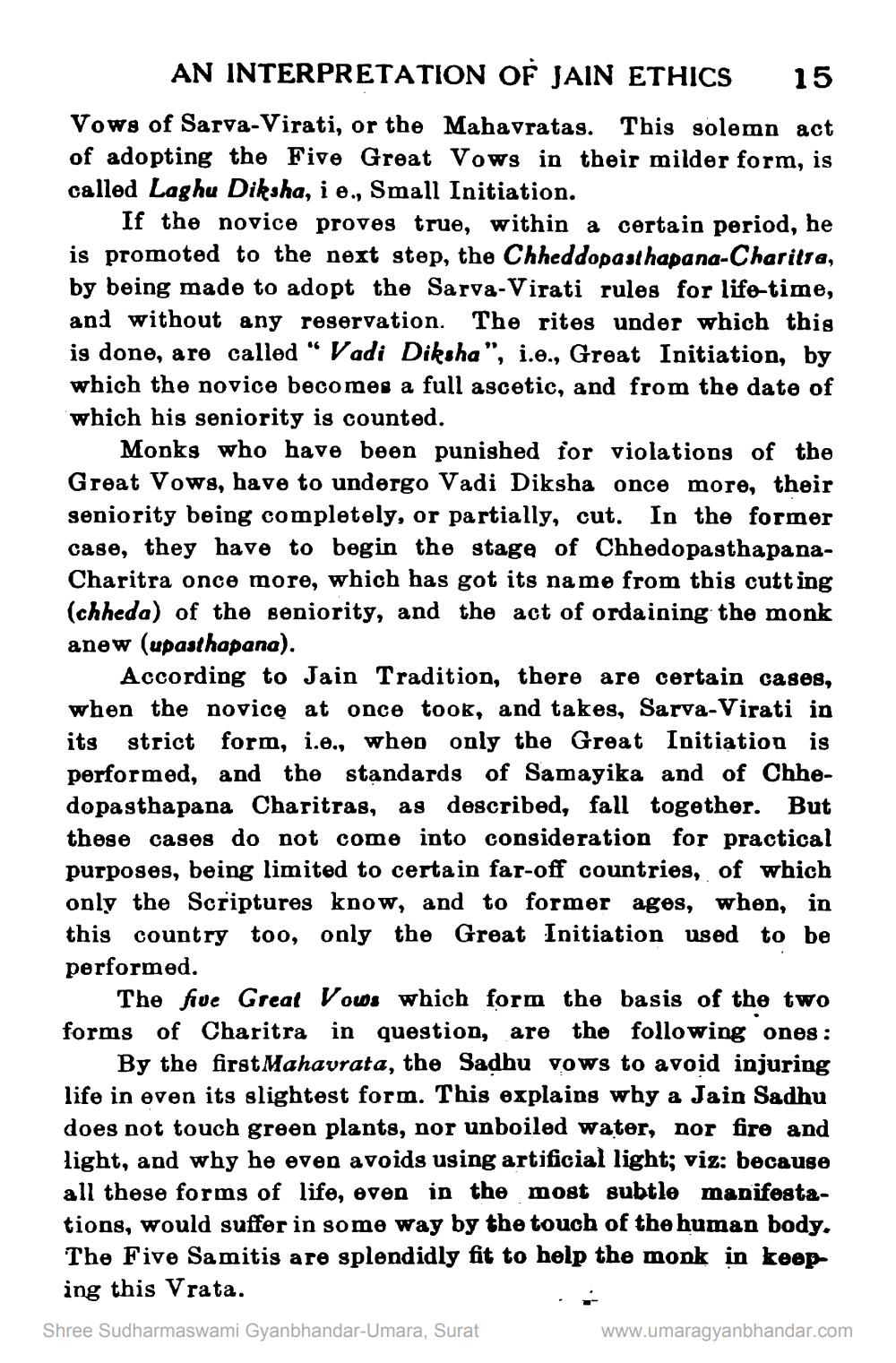________________
AN INTERPRETATION OF JAIN ETHICS 15 Vows of Sarva-Virati, or the Mahavratas. This solemn act of adopting the Five Great Vows in their milder form, is called Laghu Diksha, i e., Small Initiation.
If the novice proves true, within a certain period, he is promoted to the next step, the Chheddopasthapana-Charitra, by being made to adopt the Sarva-Virati rules for lifo-time, and without any reservation. The rites under which this is done, are called “Vadi Diksha", i.e., Great Initiation, by which the novice becomes a full ascetic, and from the date of which his seniority is counted.
Monks who have been punished for violations of the Great Vows, have to undergo Vadi Diksha once more, their seniority being completely, or partially, cut. In the former case, they have to begin the stage of ChhedopasthapanaCharitra once more, which has got its name from this cutting (chheda) of the seniority, and the act of ordaining the monk anew (upasthapana).
According to Jain Tradition, there are certain cases, when the novice at once took, and takes, Sarva-Virati in its strict form, i.e., when only the Great Initiation is performed, and the standards of Samayika and of Chhedopasthapana Charitras, as described, fall together. But
ese cases do not come into consideration for practical purposes, being limited to certain far-off countries, of which only the Scriptures know, and to former ages, whon, in this country too, only the Great Initiation used to be performed.
The five Great Vows which form the basis of the two forms of Charitra in question, are the following ones :
By the first Mahavrata, the Sadbu vows to avoid injuring life in even its slightest form. This explains why a Jain Sadhu does not touch green plants, nor unboiled water, nor fire and light, and why he even avoids using artificial light; viz: because all these forms of life, even in the most subtle manifestations, would suffer in some way by the touch of the human body, The Five Samitis are splendidly fit to help the monk in keeping this Vrata.
-
Shree Sudharmaswami Gyanbhandar-Umara, Surat
www.umaragyanbhandar.com




